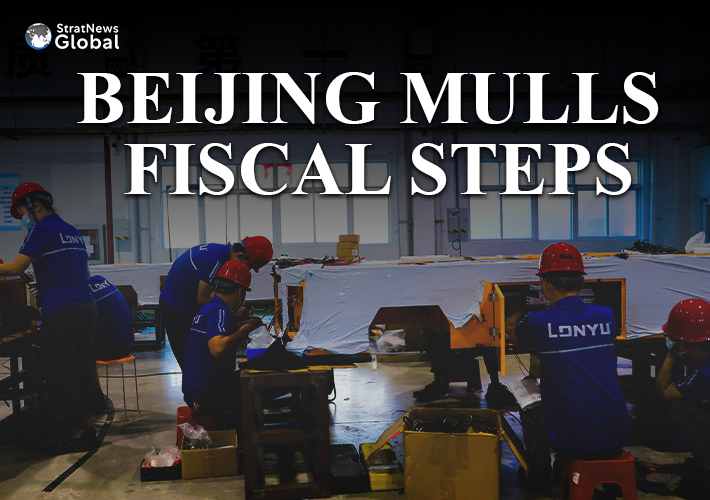On Tuesday, state media reported that China‘s Politburo, the top decision-making body of the Communist Party, plans to enhance support for the economy through careful monetary and active fiscal measures, including adjustments to interest rates and bank reserve requirement ratios (RRR). The Politburo indicated a flexible approach to policy, as investors anticipate additional economic stimulus. Despite a growth rate that exceeded expectations in the first quarter, the world’s second-largest economy continues to encounter challenges.
“The sustained recovery and improvement of the economy still faces many challenges,” the Politburo said, according to Xinhua news agency, after a meeting chaired by President Xi Jinping.
The Politburo pointed to problems such as insufficient demand, huge pressures on firms, risks and hidden dangers in key areas of the economy.
“At the same time, it must be noted that China’s economic foundation is stable, with many advantages, strong resilience, and great potential,” it said.
China has set an economic growth target for 2024 of around 5%, which many analysts say will be a challenge to achieve without much more stimulus.
China’s manufacturing and services activity both expanded at a slower pace in April, official surveys showed on Tuesday, suggesting some loss of momentum for the economy.
“We need to flexibly use policy tools such as interest rates and reserve requirement ratios, increase support for the real economy, and reduce the overall cost of social financing,” it said.
The People’s Bank of China has in recent months delivered modest cuts in RRR and interest rates to support economic growth.
“The meeting hints that there might be cuts in interest rates and RRR in the second quarter,” said Xing Zhaopeng, senior China strategist at ANZ.
Amid tepid domestic demand and a property crisis, Beijing has ramped up infrastructure investment and turned to investing in high-tech manufacturing to lift the economy this year.
China will issue ultra-long term special treasury bonds as soon as possible, and speed up the issuance of local government special bonds to maintain the necessary intensity of fiscal expenditure, the news agency quoted the Politburo as saying.
Beijing plans to issue 1 trillion yuan ($138.14 billion) in special ultra-long term treasury bonds to support some key sectors.
China will coordinate and improve policies to reduce housing inventories and optimise policy measures for new housing, the Politburo added.
“The meeting proposed to resolve home inventory and optimise new homes, which means China may allow local governments (to) buy commercial houses…and turn them into affordable houses. This could be a significant turning point for the supply side of the property industry,” said ANZ’s Xing.
Shares of beleaguered Chinese property developers have rallied this week on speculation more stimulus measures will be unveiled soon to clear a glut of unsold homes. New home prices fell at their fastest pace in more than eight years in March as developers’ debt woes dragged on demand.
Top leaders also emphasised the need to develop “new productive forces” according to local conditions, Xinhua said.
The term “new productive forces” was coined by President Xi Jinping last September, underscoring the need for economic development based on innovation in advanced sectors.
With Inputs From Reuters

